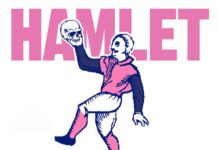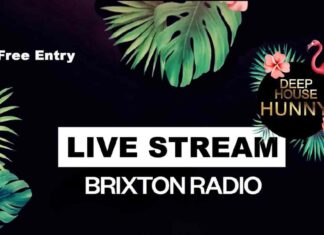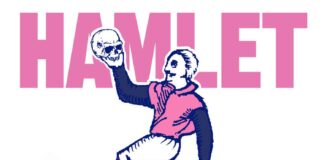Gargie Ahmad watched the Black Men’s Consortium and Tony Cealy perform Kwame and The Lockdown – keeping up the conversation about Black men’s mental health
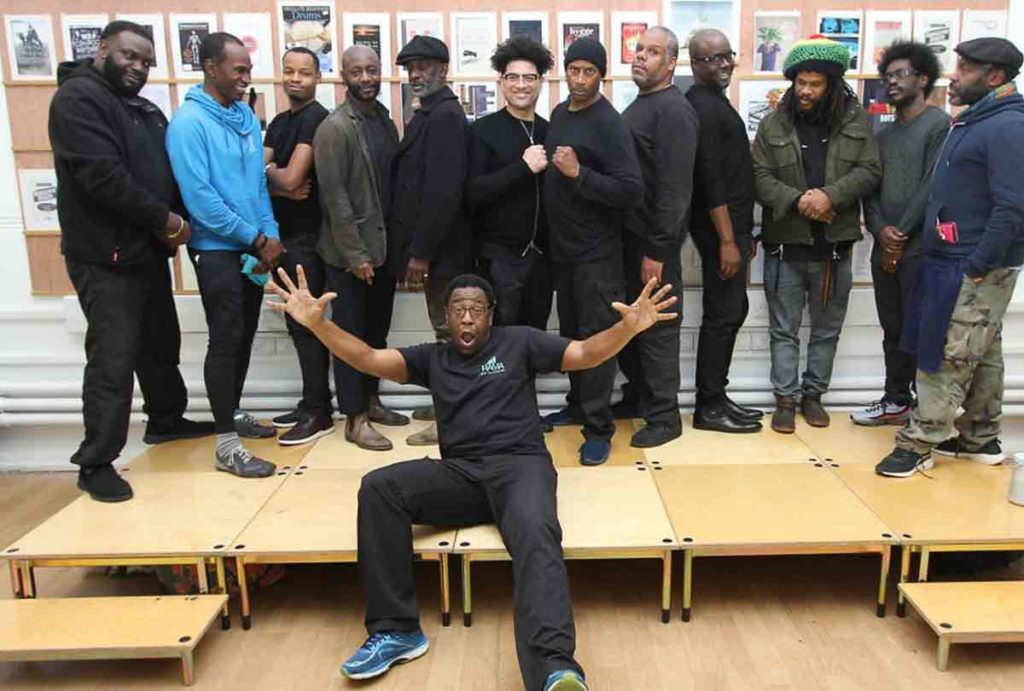
After a year of lockdown, the impact of the pandemic on mental health has become clear.
The pandemic has also disproportionately affected Black people and communities of colour, as existing inequalities have become worse.
Adapting the arts to explore these issues online has become a new challenge, but it was tackled with creativity by arts and social justice practitioner Tony Cealy.
His latest enterprise brings together performers from earlier projects with new volunteers from London, Leeds, the USA, and Singapore.
This group – the Black Men’s Consortium – has been exploring the impact of the pandemic on Black men’s mental health through Zoom performances of Kwame and the Lockdown. Some development of this work took place in Brixton library.
Their latest shows took place recently as part of Lambeth council’s programme for World Health Day and stress awareness month.
They follow Kwame, a young man, as he struggles to cope with the pressures of pandemic life experienced by Black communities as he journeys through bereavement, losing his job, and facing a night in a police cell after a seemingly simple encounter at the bank escalates.
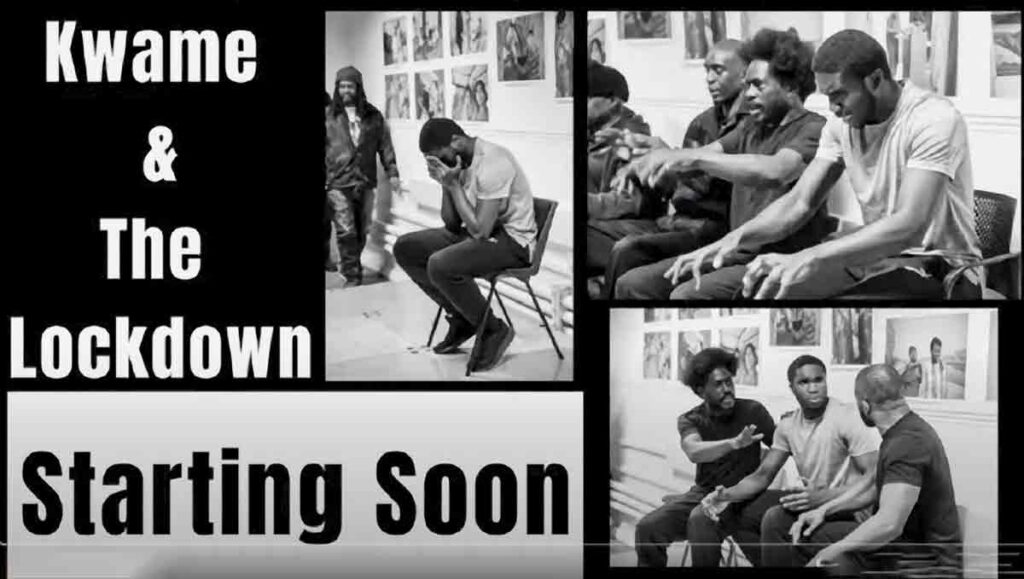
As Kwame passes between various racist institutions, we observe his experiences take their toll on his mental health.
The actors seek to channel lived experience, discuss the potential for change, and how to get support.
Some scenarios are direct testimonies from members of the group, while others represent stories they have learned along the way.
Later, through improvisation, scenarios are repeated with audience volunteers to see if anything in Kwame’s journey could have been done differently.
Dialogue with the audience is integral to these events, which seek to help everyone involved – performers, facilitators and audiences – to take personal and collective action for mental health and wellbeing.
Discussion involved intense criticism of current issues, such as the widely rejected recent Commission on Race and Ethnic Disparities report, vaccine hesitancy in ethnic minority communities, and over-policing and over-representation of Black men in the criminal justice system.
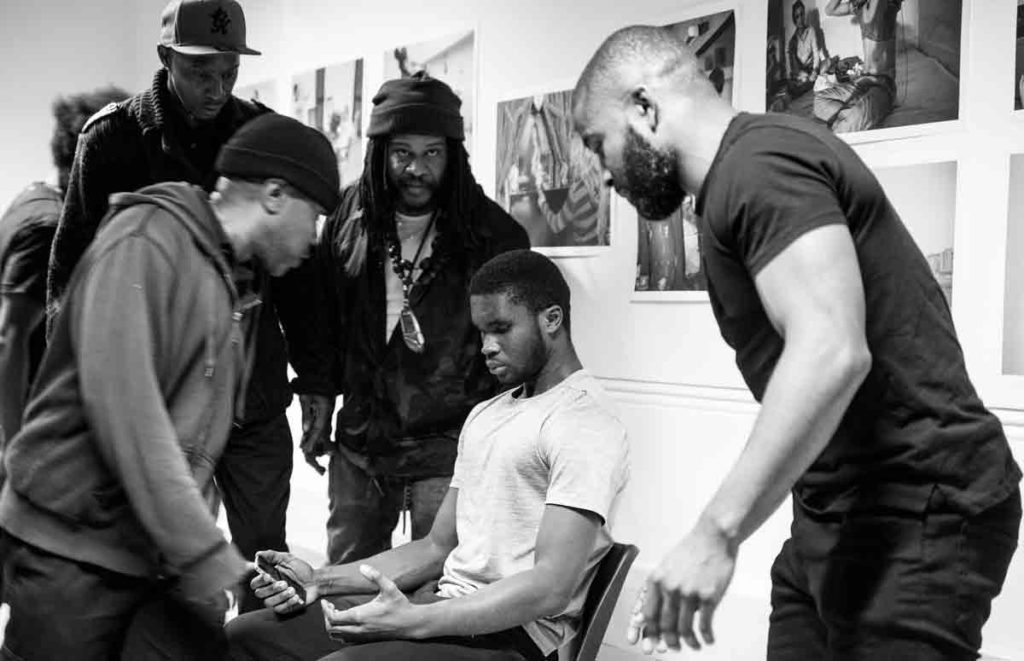
Actors David, Lloyd, Keith, Kirk, Matthew, and Sani from the Black Men’s Consortium took me through what Kwame and Lockdown means to them …
What brought you to this group?
Kirk: I joined to get away from the hustle and bustle of daily life, to find a place where I would meet people with a common interest in performing and to give back to and raise awareness of Black men suffering with mental health. This is an area I now have a strong interest and passion for.
Lloyd: Working as a mental health practitioner, I wanted to do more for my community around the misconceptions surrounding mental health and wellbeing. I see a lot of my brothers in hospital. When you listen to their stories and journeys, you feel, why wasn’t their intervention given earlier? This person didn’t have to be here if he were given the support and the tools to equip themselves, and avoid such pitfalls. We need to access services that are out there, such as talking therapies, counselling, and bereavement services, and address the issue of masculinity, the issue of racism – all these can have a negative impact on our emotional wellbeing and mental health..
Keith: I lost two young male members of my family through suicide, and it still affects me … I am able now to finally talk about it openly, and to have the help and support of other men, as well as Black men. If I can help prevent anyone else from having severe depression or facing suicide, then, to me, that’s why I’m here.
What about performance is special to you?
Matthew: I got cast for a show at school, and being on stage felt good and ever since then I’ve just wanted to keep chasing that feeling. Along the way, I started to discover that performance was a way for me to learn about the different perspectives of people, learn their stories and be able to portray those stories to an audience.
David: And when you’re in live theatre, it can go wrong and, you know what – for performers, it’s a strange exhilaration!
Kirk: The stereotype of a strong Black man and the inability to cry and show their true emotions. Being in the group has enabled a release and provided a place where true inner feelings can be released instead of suppressed.
How does it feel rehearsing and performing on the Zoom stage?
Keith: It’s kind of magical … I’m here, wherever I am, and right across the other side of the Atlantic is Matthew, and we can be in the same room – we can perform worldwide.
David: It has definitely got a place, and I think it needs to stay in some form. It doesn’t take away from being in the actual theatre, but I think this has got a form. And it can target audiences specifically.
Lloyd: It doesn’t beat being physically on the stage, but it’s better than nothing, and it really was helpful for the lockdown.We touched audiences that we never would have touched had they been in the physical space.
Why do you think it’s important to explore the issues that you are working on in this performance?
Matthew: You can’t go through hell alone … these things can be prevented just by communicating, you know, just find somebody to talk to, to help you work out your issues. Because I would say, eight times of 10, they’ve probably been in your shoes. They know what hell feels like, and they can help you get through it. Just communicate.
Sani: After the recent shows, there were people in the audience saying ‘I’ve been through what the main character’s been through’, and that’s something that hit me deeply. Because throughout the whole story we see the character keep things to himself, until he reaches breaking point. And people relating to that is just really painful, because it shows that they have no space … I think that’s something that people really need now, and we need to open up those conversations.
David: The story needs to be told by us. At one stage, you went into a shop, and you wanted a flesh-coloured plaster, you would only get one that colour that could fit over White skin. Black women didn’t have hair products that were for them, because you know, it was for European hair. So it’s the little things, as well as the bigger things. And, you know what, we have earned the right to tell our story, and we’ve earned the right to be here, and you know what, we’re going to be heard.
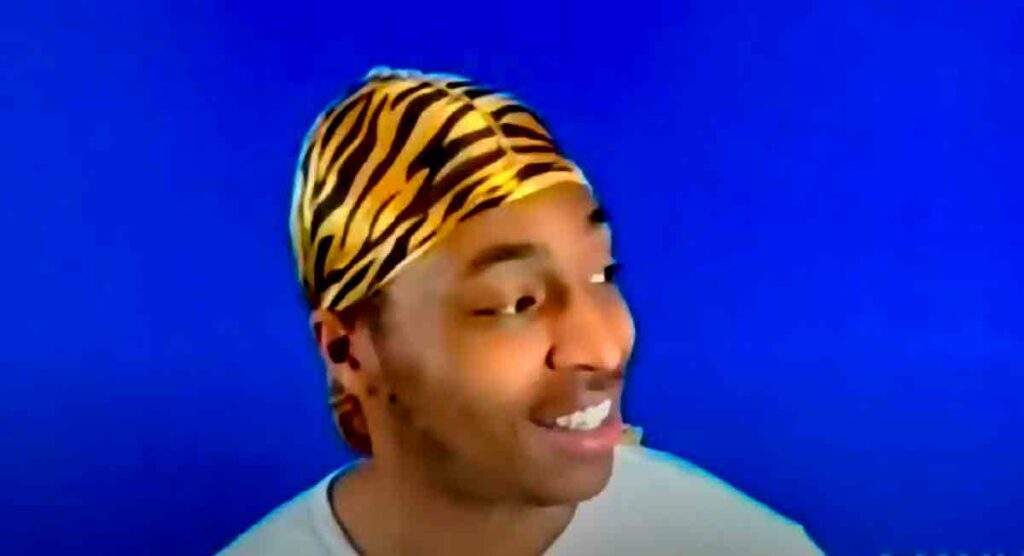
What’s coming up next for you all?
Lloyd: I’m waiting from a phone call from Marvel Studios! On a serious note, I just want to carry on performing, getting the word out there, getting more men on board who want to be the change.
Sani: Making our productions bigger and better, getting more people in, just making something really special. I feel like we’re doing a really good thing here. But for me, hope just doing drama school, doing more acting, and getting famous by 25, that’s the goal!
Keith: The topics that we discuss – Covid, Black Lives Matter, vaccination amongst Black people, depression, anxiety, it doesn’t matter if you’re rich or poor, mental health can affect you regardless of who you are. People need to talk about bereavement. Men need to cry. We’re going to continue, and hopefully grow, and we’re thinking of combining a live and Zoom show together. More shows, more promoting the topics that are affecting everybody in this world, in this country, and hopefully we can make a change for the better. You know, there’s too much violence, there’s too much negativity in this world, and I just think that we really need to just start to embrace each other, and look at the positives, as opposed to the negatives, and work along that.
Catch Kwame and the Lockdown on YouTube. Look out for further performances from The Black Men’s Consortium, and follow Tony Cealy’s work in 81 Acts of Exuberant Defiance, celebrating artistic resistance in commemorating 40 years since the Brixton Uprising of 1981.

